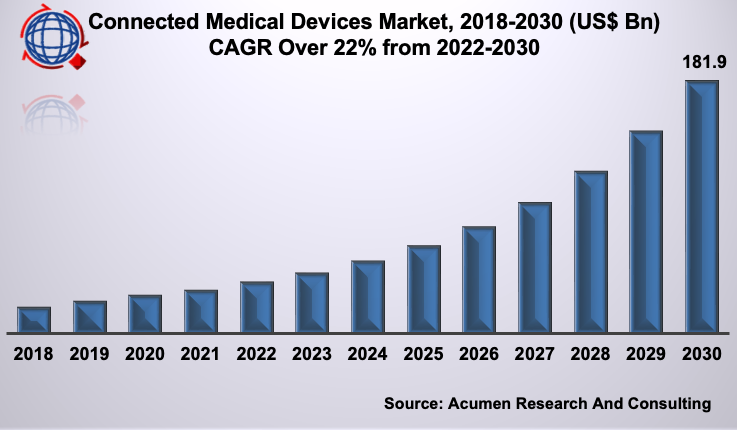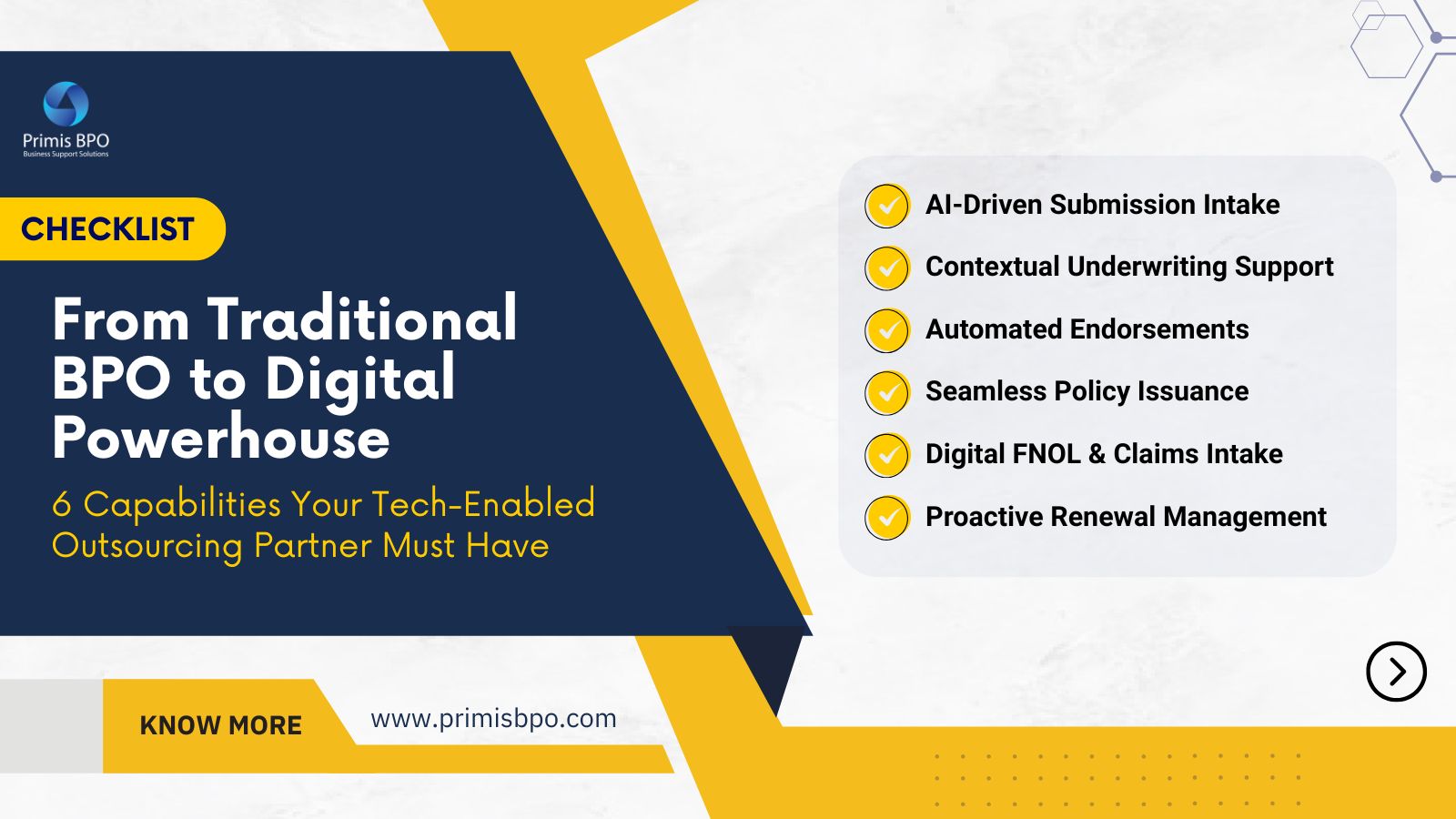
Digital transformation is driving forward the healthcare industry at a prodigious speed. As a result, healthcare providers are increasingly turning to embrace contemporary technology to stay competitive in the market, enhance the quality of their services and products, ensure compliance and stay focused on patient care. But, healthcare IT is struggling. With internal resources only, navigating through the complicated digitalization process and developing complex technology solutions at the required speed & quality that will eventually lead to enhanced ROI is a massive challenge for them. Then, how can the healthcare sector adopt digital processes seamlessly and increase ROI?
Let's go through this blog to understand how the healthcare industry is meeting the challenges and accelerating digitization through outsourcing.
IT Challenges Faced by Healthcare Professionals
Increased Adoption of Advanced Technologies
- The healthcare industry faces an enormous number of challenges. The most significant among them is the growing use of connected medical devices, equipment, and other IoT devices. Do you know? As per a recent report, ‘the global connected medical devices market accounted for US$ 31.2 Bn in 2021 is expected to reach US$ 181.9 Bn by 2030 with a CAGR of 22.1% during the period of 2022 to 2030.’ The same report highlights, ‘the market for connected medical devices has been continuously growing over the last decade.’

- More digital devices imply increased targets, risks, and more endpoints for healthcare IT professionals to protect, manage, and constantly monitor. Even the applications used in the health sector, like Patient Administration Systems, Appointment Management Systems, etc., are now driven by advanced techs like AI and ML.
- Henceforth, without proper knowledge and training, leveraging healthcare technologies in order to transform the health systems and create a connected healthcare environment is quite difficult for in-house professionals.
Healthcare Resource Shortages
- For the healthcare IT staff having to deal with many serious issues, it’s a constant struggle for them to execute the digital processes appropriately. After all, it’s not like they only have one issue to worry about. They might be busy installing, upgrading, and maintaining infrastructure to collect, store, process, and analyze data, supporting telemedicine, robotics, and other advanced devices and technologies, handing the system updates, etc.
- On top of all that, healthcare IT departments undergo pressures like: shrinking budgets, difficulty in recruiting and retaining expert staff, and handling growing amounts of data with employee shortages that make it challenging for them to resolve the problems.
Lack of Data Management Systems
- Using connected devices and AI-integrated software applications generates a massive amount of data for healthcare companies that they need to manage appropriately in order to gain valuable insights.
- However, for the majority of care providers, handling this data becomes difficult due to a lack of advanced architecture and proper data management systems.
Cybersecurity
- Connected devices and digital patient records attract the attention of malicious hackers for executing fraudulent activities.
- You would be shocked to know that according to a 2022 Mid-Year Report, 337 data breaches were reported to the U.S. Department of Health and Human Services only during the first half of 2022.
- These attacks call for a robust cybersecurity system that is hard for in-house healthcare professionals to formulate, possibly leading to customer attrition.
Regulatory Issues
- It is imperative for the healthcare industry to be compliant with the updated regulatory norms. A lack of effort by health service providers can affect healthcare companies in two ways: one, it increases the cost of healthcare services, and second, it creates confusion among the general public, leading to lawsuits and penalties.
- To combat these regulatory challenges effectively, healthcare providers need to think of a way out.
Healthcare IT Outsourcing
The enormous number of challenges faced by IT professionals drives a strong case for outsourcing healthcare IT services. Agility, technology enablement, scalability, innovation, etc. - healthcare professionals have various reasons for outsourcing their IT activities that help them to stay competitive, provide the best patient care, and move their organization towards success.
Routine IT maintenance tasks offloaded to a third-party vendor can free up valuable staff time to devote to more strategic activities. After all, it’s hard for IT to focus on implementing digital transformation projects when they’re busy with more vital tasks.
Not only do outsourcing providers have the experience, but they know what works and what doesn’t work. They are also likely to have access to the latest tools and technologies that enable the healthcare IT staff to save time and money and be in a better position to increase positive outcomes. Moreover, a third-party provider has an array of products and services that can simplify business operations and other processes, thereby enhancing security, optimizing performance, and more— all at reduced costs.
How Outsourcing Helps Healthcare Organizations to Increase ROI
Decreased Operational Costs
If you are planning to have a fully operational IT team in-house, you must be ready to invest in equipment, human resources, and infrastructure. That’s a huge expenditure that you need to add to your budget. With outsourcing, this huge amount can be saved as the outsourcing companies have their contemporary infrastructure and professionals who are experts in their fields and have the latest market insights.
Advanced Technology
Outsourcing providers know what’s best to meet your technological requirements as they work with several other healthcare organizations. As a result, their processes include the latest, best, and technologically advanced resources and tools in the market. From EMRs to mobile apps and their maintenance, quality assurance, and testing – you name it, and the outsourcing company can do it for you. This helps healthcare companies to improve patient experience and enhance profits.
Improved Security
Due to the considerable amount of sensitive data generated constantly, the healthcare industry is prone to fraudulent activities. As HIPAA demands complete data security, care providers are bound to find measures to avert penalties. That’s another big reason healthcare companies opt to outsource IT services to a reliable third party. Outsourcing providers ensure compliance with HIPAA regulations so that their customers do not face legal issues.
To Wrap Up
The healthcare organizations that are choosing to outsource IT operations are staying ahead of the competitive market with an enhanced ROI. To understand an even better picture of our offerings and how we can help your organization, please feel free to contact Us.
Recent Blogs

Optimizing Auto Insurance Underwriting Through Outsourced AI-Driven Risk Intelligence

[Checklist] From Traditional BPO to Digital Powerhouse: 6 Capabilities Your Tech-Enabled Outsourcing Partner Must Have

Outsourcing AI-Enabled Property Risk Analysis

Outsourcing AI-Powered Risk Assessment for Insurance Optimization

Augmented Underwriting: When Human Expertise Meets Digital Intelligence